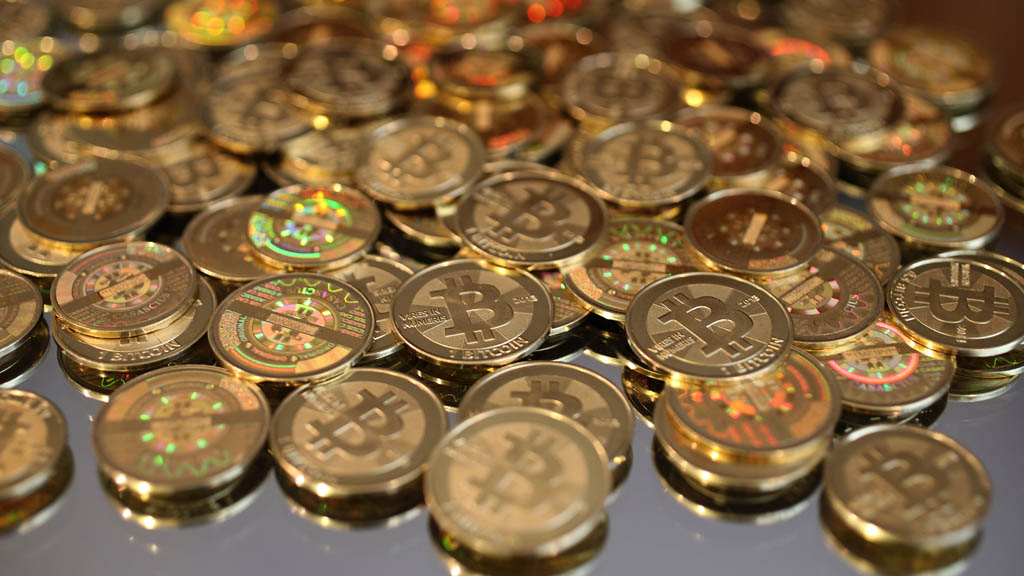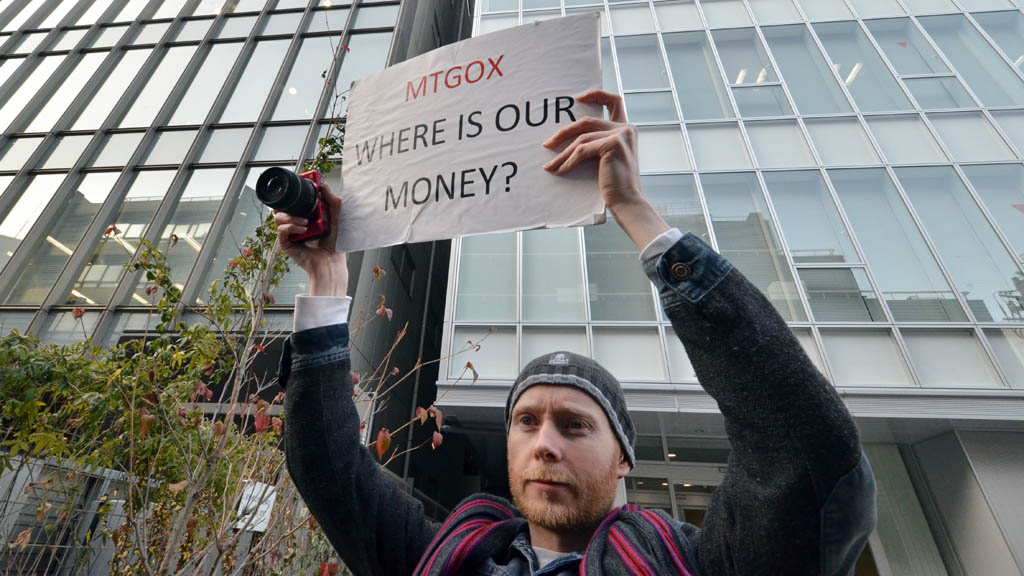Bit for purpose? Why Mt. Gox is not the end of bitcoin
The shutdown at Mt. Gox has spread alarm across the bitcoin community, with speculation that problems at such a major exchange could spell the end for the digital currency but is this the case?

A document that has been circulating the internet, claiming to be a crisis strategy document from Mt. Gox, speaks in apocalyptic terms.
The document, posted by Two-Bit-Idiot – a well-known figure in the bitcoin community, suggests that the reason Mt. Gox abruptly stopped trading is connected to the theft of 744,408 bitcoins. Bitcoins, as of Thursday according to UK-based exchange Bitstamp, are valued at just under $600 each.
The Mt. Gox document, if it is authentic, warns “this could be the end of bitcoin”, and it is not as if the cryptocurrency does not already have its detractors, who point to a volatile price (it has halved in value since December) and its potential manipulation at the hands of cyber criminals.
Once Mt. Gox is out of the way, bitcoin will be stronger. Kolin Burges
But could the apparent failure of one exchange really bring down a currency that some see as the future of money? Channel 4 News lists five reasons why this is not the case.
Mt. Gox incident needed to happen
Kolin Burges, a Briton who has been protesting outside Mt. Gox’s Tokyo headquarters after finding that he could not access hundreds of thousands of dollars worth of bitcoins held with the exchange, says Mt. Gox needs to be out of the way for bitcoin to evolve.

He told Channel 4 News: “Once Mt. Gox is out of the way, bitcoin will be stronger. The exchanges will be expected to have better transparency and better security, and possibly there will be more regulation. It will emerge stronger the benefit of bitcoin.”
Alistair Cotton, a corporate dealer at Currencies Direct, told Channel 4 News that “you can see it almost evolving in front of your eyes.” He adds that to evolve, the unregulated digital money will need to start following currency rules.
Sending money
The major focus in the media when it comes to bitcoins is on trading, in which a rapid increase in the value of bitcoins over the past year has seen many traders massively increase the value of their investments.
Mr Cotton argues that the future of cryptocurrency is as a “payments platform”.
Whether governments choose to regulate Bitcoin or ban it altogether, the reality is that Bitcoin poses a significant threat to fiat currencies. Shai Heffetz, InterTrader
He told Channel 4 News. “It is much better than the current system which is dominated by large banks.”
Making payments in different currencies under conventional methods entails a fee being paid to banks, but payment via bitcoin is much, much cheaper.
Mr Cotton said he would be “nervous” about using bitcoin for “large payments” because of the lack of regulation of the industry.
Some big countries are taking it seriously
Die-hard anarcho-capitalist supporters of bitcoin will care little what sovereign states such as the US and the UK think of bitcoin. For them, it is the ethereal, decentralised nature of bitcoin that is appealing – freeing it from the scourge of government regulation, surveillance and taxation.
However, if governments take the currency seriously this will undoubtedly improve trust, and make it more mainstream.
A plan is being worked up by Alderney, in the Channel Islands (pictured, below), says Michael Parsons, who describes himself as a “bitcoin ecosystem entrepreneur”.

Mr Parsons has been holding meetings, alongside the Alderney finance minister Robert McDowall, with HM Treasury about setting up a regulatory system – and the plan is reported to have “top level support” from the Royal Mint.
Mr Parsons told Channel 4 News that the Treasury was looking at the project “as a possible, and I stress possible not probable, template for the UK to follow.”
Meanwhile the US Federal Reserve has also embraced bitcoin to some extent. Ben Bernanke, the Fed chairman until this month, said in November that the digital currency “may hold long-term promise”.
I am expecting all fiat currencies to collapse in the coming years so bitcoin will be in a very good position. Jeff Berwick
It is understood that bitcoin experts have held high level meetings with Fed representatives.
However, Shai Heffetz, managing director of InterTrader – a spread betting and contracts for difference (CFD) business – says that bitcoin is also under attack from sovereign states.
He told Channel 4 News: “Bitcoin exchanges in India are shutting down and users being warned against security and financial risks; similarly China has banned financial institutions from handling virtual currencies and Russia is going the same way – warning that those who use ‘cryptocurrencies’ are breaking the law.
“Whether governments choose to regulate Bitcoin or ban it altogether, the reality is that Bitcoin poses a significant threat to fiat currencies (government-declared legal tender) and governments are wrestling with ways to tame what is seen as an unruly beast.”
More exchanges are emerging…
Mt. Gox may have serious problems, but there are plenty of alternatives. Mr Cotton says that the Mt. Gox is a “minor blip” and that “there are plenty of other exchanges to take up the slack.”
Exchanges such as UK-based Bitstamp have distanced themselves from what happened at Mt. Gox.
Bitstamp said in a statement: “Bitcoin remains strong despite the failure of any one exchange and will continue to grow and thrive as long people desire that it do so.”
However, for new exchanges to be credible and trusted, they will need to open themselves up more to banks, Mr Parsons argues.
We may not have a choice
Mr Berwick predicts that the decentralised, global model of currency will survive – and that centralised, sovereign currencies are doomed to collapse.
“No one can see the future but I am much more positive on bitcoin becoming a major currency in the coming years than I am negative on it.
“Not to mention, I am expecting all fiat currencies to collapse in the coming years so bitcoin will be in a very good position to transition the world from ridiculous centralized currencies to a completely decentralized one.”

Mr Heffetz argues that, in some ways, we already operate in digital currency.
“Thanks to reckless inflation policies, 97 per cent of money in the UK is virtual anyway. Only 3 per cent of the money we hold in our bank accounts is backed by real minted coins and printed notes.
“In essence, global governments are already running their own virtual currencies, so it’s very much a possibility that the likes of Bitcoin will take over in the distant future.”